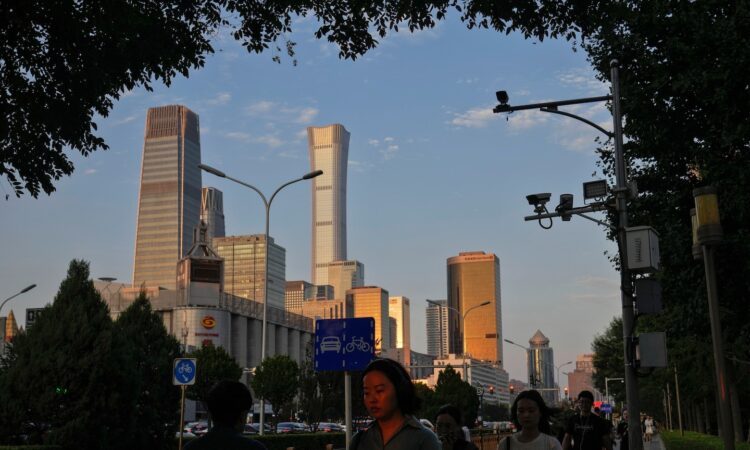
For the past decade, Americans have been transfixed by the specter of a rising China. We’ve worried that the Chinese economy would destroy American jobs and that the Chinese military would draw the United States into a war over Taiwan. Now comes evidence that China’s economy is stagnating — and those problems are unlikely to go away, because China’s population is rapidly aging and declining. The “Chinese century” might be over before it has begun.
That should be good news, right? Not so fast.
China has been a chief driver of the global economy for the past two decades. Imports of Chinese goods keep prices low for U.S. consumers and China’s purchases of U.S. Treasury bills keep interest rates lower than they would otherwise be for U.S. home buyers. The loss of jobs to China ended around 2010, while the creation of new jobs linked to China trade continues. U.S. exports to China amounted to $192 billion in goods and services and supported more than a million U.S. jobs in 2021. Little wonder that Treasury Secretary Janet L. Yellen warns that China’s current economic slowdown is a “risk factor” for the U.S. economy.
There is geopolitical risk as well. Although conventional wisdom dating to the time of Thucydides has it that we should fear revisionist powers on the rise, the historical record indicates that declining revisionist powers might be even more dangerous. Germany, notes Hal Brands of Johns Hopkins University, launched both World War I and World War II in a mood of “deep pessimism caused by the fear of impending decline.” More recently, Russia, a country in a demographic death spiral, launched an invasion of Ukraine in the hope of reclaiming lost imperial glory.
China’s economic slowdown could cause Xi to pursue more authoritarian and militaristic policies — even an invasion of Taiwan — to contain rising domestic discontent and channel popular anger against external foes. Paul Heer, a former U.S. national intelligence officer for East Asia, warns that U.S. export-control policies and tariffs are creating a convenient scapegoat, allowing Xi to blame the United States for China’s economic woes. “We should take no comfort in China’s economic slowdown,” Heer told me, “because it will probably increase domestic tensions and problems inside China, which has never been a good thing for the U.S., or for U.S.-China relations.”
In short, evidence of China’s economic woes should be filed under “be careful what you wish for.” A declining China might be more dangerous than a rising China.






